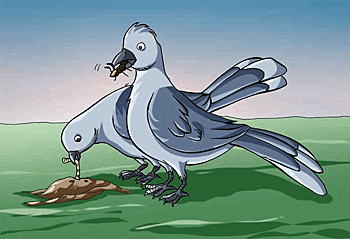sec-, seg-, -sect, -section, -sectional
(Latin: to cut)
2. Like an insect in shape or form.
2. Having the nature of insects.
3. Consisting of insects.
They are mostly of small size, and their molar teeth have sharp cusps. Most of the species burrow in the earth, and many of those of cold climates hibernate in winter.
The order includes the moles, shrews, hedgehogs, tanrecs (small insectivore, native of Madagascar), and allied animals, also the colugo (arboreal nocturnal mammal of southeast Asia and the Philippines).
2. An organism that feeds mainly on insects.
Although individually small, insects exist in enormous numbers and make up a very large part of the animal biomass in almost all non-marine environments.
In Queensland, Australia, pastures; for example, it is normal to have a greater total weight of Scarabaeidae larvae under the surface of the ground than of the beef cattle grazing above it.
A great many creatures depend on insects as their primary diet, and many that do not (and are thus not technically insectivores) nevertheless use insects as a protein supplement, particularly when they are breeding.
2. An animal or plant that eats insects.
Plants that have specialized leaves or leaf parts capable of trapping and digesting insects; such as, the Venus's flytrap, the pitcher plants, and the sundews.

Insectivorous bat populations adversely impacted by white-nose syndrome (WSN) and wind turbines, may be worth billions of dollars to North American agriculture.
This study often includes the study of other terrestrial arthropods; such as, spiders, scorpions, and ticks.


